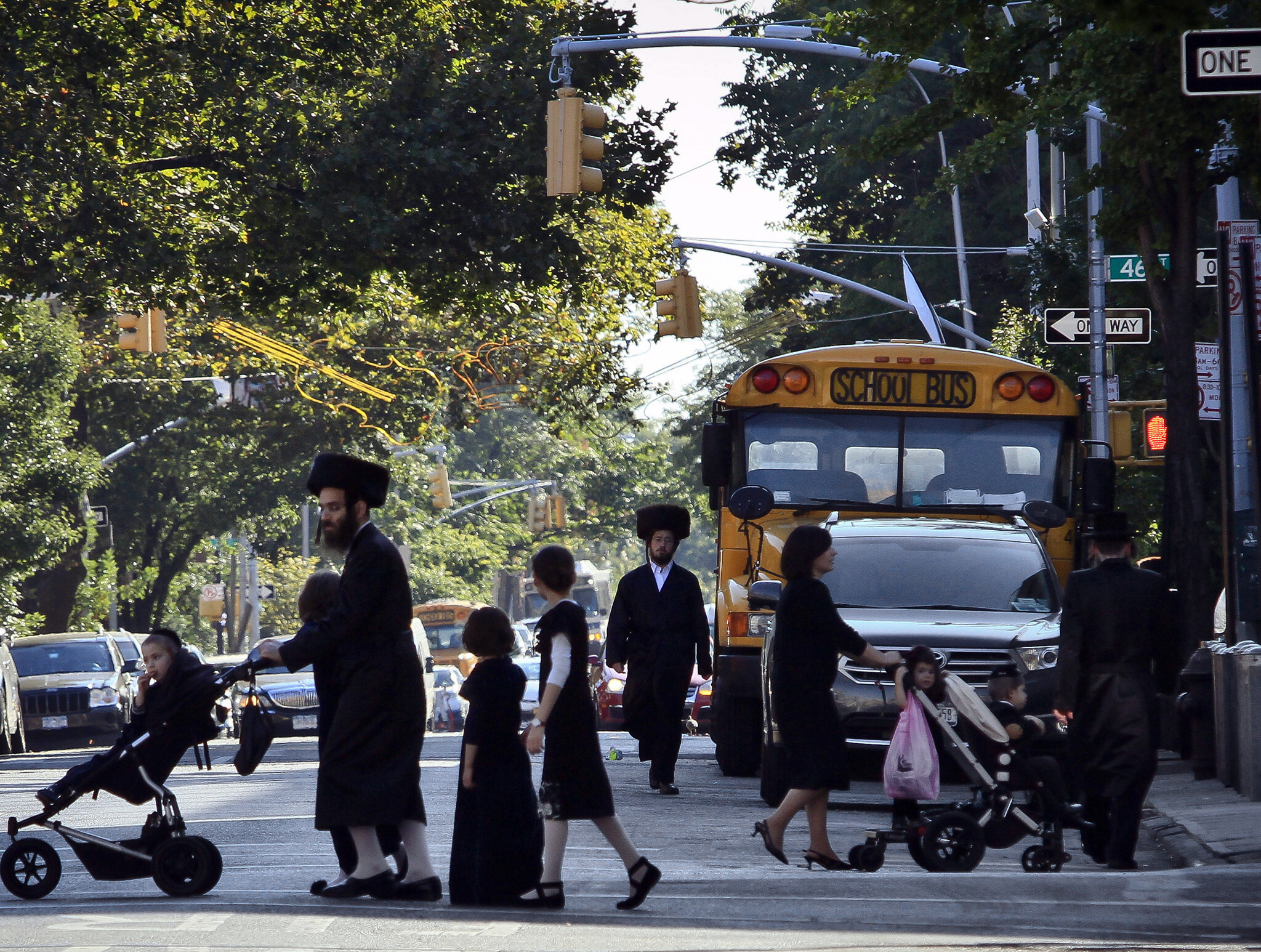NEW YORK — New York State officials have for the first time ruled that a Jewish day school is violating the law by not providing sufficient secular education, amid an ongoing legal battle over the massive education system.
New York Education Commissioner Betty Rosa last week ruled that Brooklyn’s Yeshiva Mesivta Arugtah Habosem had failed to meet state standards for secular education.
The yeshiva, in the Williamsburg neighborhood, will be required to formulate an improvement plan with city education officials.
The state ruling was first reported by The New York Times on Wednesday.
It came in response to a lawsuit from Beatrice Weber, who said her child was being deprived of a secular education by the school. Weber recently became the head of Young Advocates for Fair Education, or Yaffed, a group that has led the push for reforms in New York’s yeshiva system.
Weber said she was “thrilled about this outcome for my son.”
State authorities have sought a balance between religious beliefs and values and secular education requirements in non-public schools. New York yeshivas have long been required to provide secular education that is “substantially equivalent” to lessons at nearby public schools, but the law has not been effectively enforced.
Critics of yeshiva education say many of the schools fail to provide adequate instruction in secular subjects, including English and math, leaving graduates unprepared to enter the workforce or mainstream society.
Members of Haredi Jewish communities hold a protest before a Board of Regents meeting to vote on new requirements that private schools teach English, math science and history to high school students outside the New York State Education Department Building in Albany, New York, September 12, 2022. (Will Waldron/The Albany Times Union via AP)
Proponents of the system argue that government meddling is an infringement on religious protections. They say the schools are the foundations of
successful communities, and that students are well educated, pointing to the fact that students are in class longer than their public school peers each day
The debate has mostly focused on ultra-Orthodox yeshivas, not on Modern Orthodox schools, which provide more secular education.
The Haredi community has fiercely resisted interference in the schools’ curriculum and critics have said public officials were reluctant to wade into the issue due to the potential political blowback.
The topic has become a flashpoint for the community in New York in recent months.
Last month, The New York Times published an investigation detailing dismal secular education in many yeshivas, which have received hundreds of millions of dollars in public funding in recent years. The funding for yeshivas is minor compared to sums allotted to public schools, and the yeshivas’ shortcomings in secular studies have been debated for years.

In this September 20, 2013 file photo, children and adults cross a street in front of a school bus in Borough Park, a neighborhood in the Brooklyn borough of New York that is home to many ultra-Orthodox Jewish families. (AP Photo/Bebeto Matthews, File)
The report helped amplify calls for more oversight over Haredi education, but also sparked outrage among many of New York’s ultra-Orthodox. Community representatives, politicians and other defenders of yeshivas accused the newspaper of unfairly targeting Jewish schools.
Last month, state education officials finalized rules that will boost oversight at yeshivas and other non-public schools and require them to provide a minimum level of secular education in four core areas.
But earlier this week a group of yeshivas and supporting organizations filed a lawsuit against the state seeking to overturn the new rules. The lawsuit argues the yeshivas are the pillars of successful communities that have been unjustly and illegally singled out for oversight.
Separately, a complaint filed with the state attorney general by Yaffed this week alleges that some yeshivas received over $28 million in public funding they were not entitled to. The petition argues the schools were providing insufficient secular education according to a New York City investigation and were therefore not qualified to receive the funding since the 2016-2017 school year.
As of 2020, there were around 160,000 students studying at about 450 yeshivas in New York State. Yaffed has projected that by 2030, 30 percent of Brooklyn schoolchildren will be ultra-Orthodox, nearly all of whom study in yeshivas or related religious schools.
